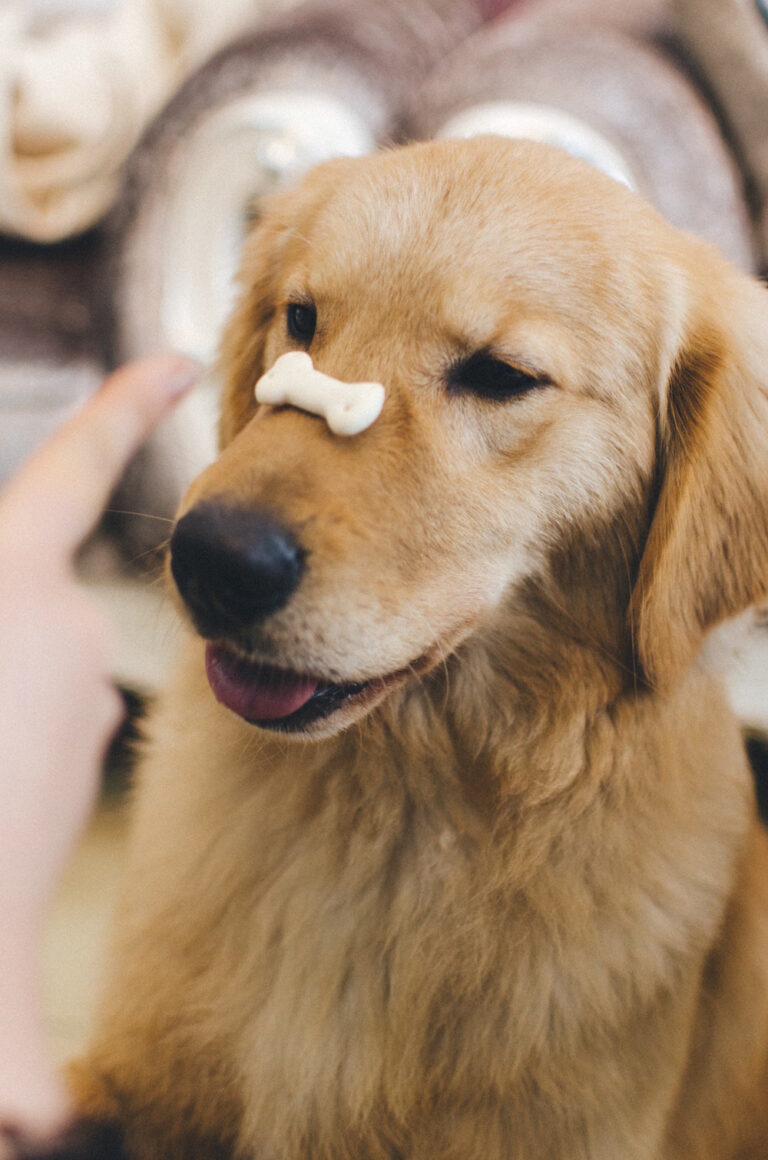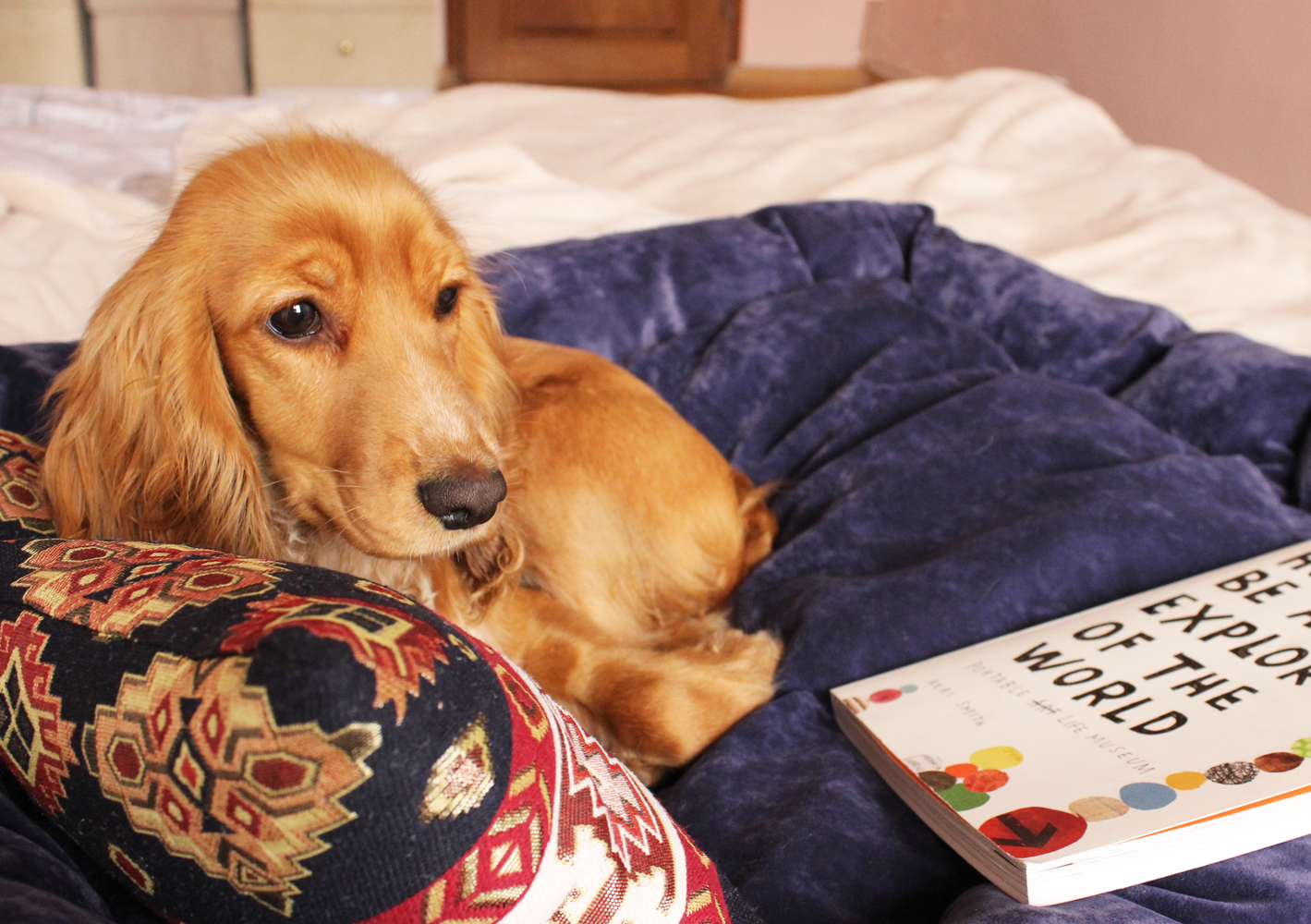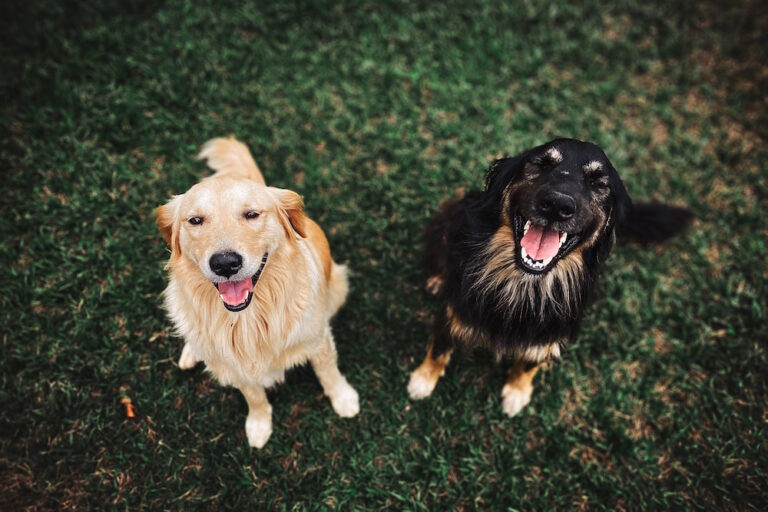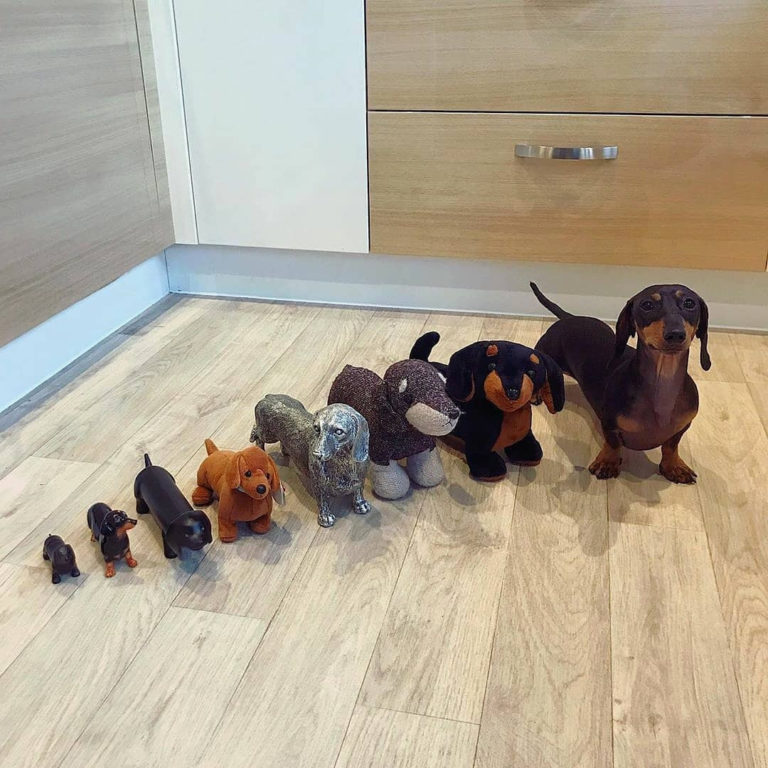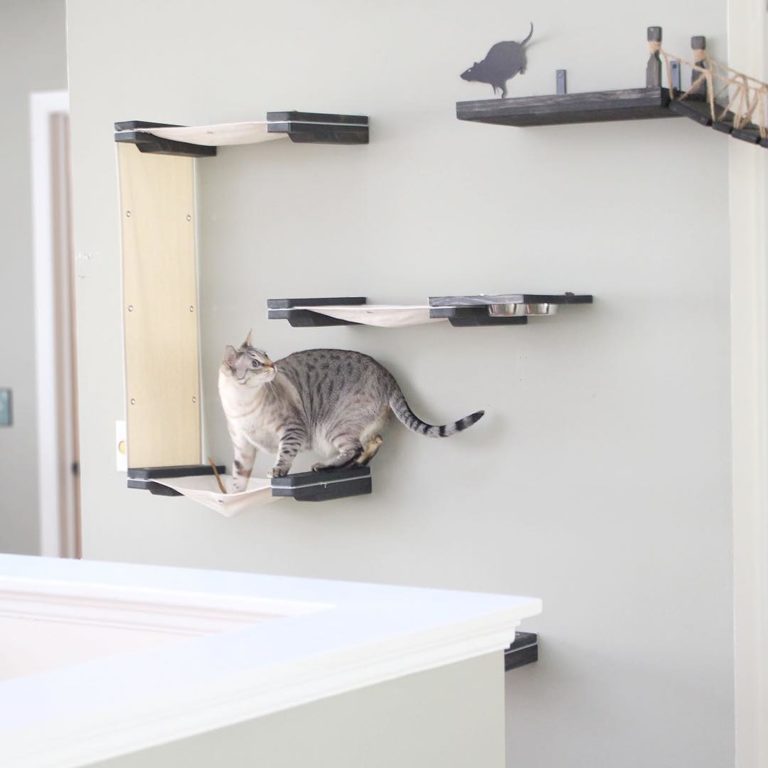How to Introduce a Pet to a Baby
As a soon-to-be parent, the prospect of introducing your four-legged friend to your newborn baby can be a little nerve-wracking. After all, your furbaby has grown used to being the only “baby” in your life. How will they handle no longer being the center of attention? More importantly, how will they react to your newest family member?

Adjusting to a major life change can be difficult, especially for pets. The good news? With a slow and steady introduction, your furry friend and your baby can live together happily. Here are a few tips on making the transition as smooth as possible for your furry friend. (Hint: Be prepared to dole out lots of tasty dog treats and chews!).
Before Baby Arrives
- Schedule a health checkup for your pet. Once you find out you’re expecting, don’t wait; schedule a vet appointment to ensure that your pet is in good health and up-to-date on their vaccinations. Ask your veterinarian to test your cat for toxoplasmosis, a rare but serious infection that can pass down from mom to baby and cause birth abnormalities. Both dogs and cats should be dewormed and have a stool sample come back negative.
- Expose your pet to the sights and sounds of children. If you have a dog, consider taking them for walks near a busy playground. You can also play recordings of baby sounds on YouTube in front of your pet to get them used to the noises that will soon fill your home.
- Practice handling exercises. Babies and toddlers can be rough with pets. Start preparing your pet for this kind of attention by touching them more frequently. Gently pull your pup’s tail and hold your cat’s paws to help desensitize them to rough handling. Don’t forget to reward them with treats!
- Get ahead of behavior issues. Your pet’s jumping problem may not be a big deal at the moment, but it’s going to be a lot less cute when the baby arrives. Start working on these issues now by holding regular training sessions with your pet. If the problem is severe, you may want to consider enlisting the help of a trainer or veterinary behaviorist.
- Carve out a safe space for your pet. Even the most kid-friendly pets need a regular break from all the chaos. Set up a designated “pet zone” for your furry friend where they can go to relax and decompress. Encourage your pet to spend time in their safe space by filling it with their favorite things — like bully sticks for dogs or interactive cat toys for your feline friends.

- Unpack baby furniture early. A new baby means lots of new furniture, which can be a big change for your furry friend. Help your pets adjust to their new surroundings by getting the crib and nursery set up sooner rather than later.
- Set up boundaries now. If you don’t want your dog licking your baby’s face or bothering you while you’re nursing, establish the rules now. One helpful way to get in front of this behavior is by teaching them to “back up” so you and baby can get some space.
When Baby Comes Home
- Introduce baby’s scent to your pet. After your baby arrives, consider sending your partner back to the house with one or two of the baby’s used blankets. Let your animals sniff them and get used to the baby’s scent. By the time the baby makes their grand entrance, your pets will recognize the smell and accept the baby as part of the family.
- Plan a meet-up on neutral territory. Ready to introduce your pet to their human sibling? If you have a dog, it’s best to have them meet the baby on neutral territory (e.g., a sidewalk or nearby park) so they don’t feel territorial. Have your partner hold the baby while your dog greets you enthusiastically. Then, once your dog has calmed down, let them sniff your baby and reward them with a treat to create a positive association.
- Use cat pheromones to calm your kitty. When introducing a cat to a baby, consider using cat pheromones to make your feline friend feel calm and in control. Allow your cat to sniff the baby’s foot and offer a treat afterward.
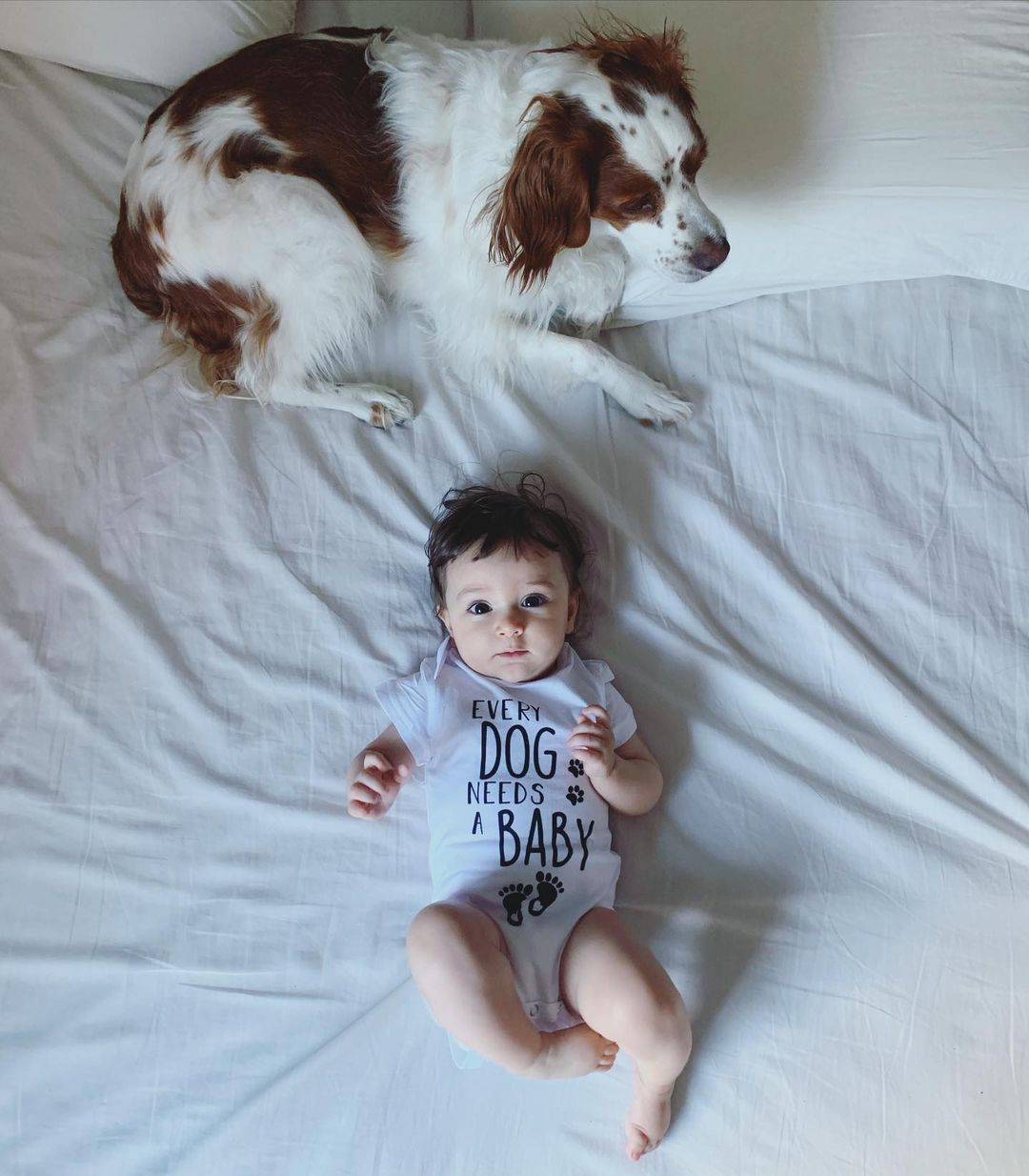
After Baby Arrives
- Include your pet when possible. If your pet feels ignored or left out, they may start misbehaving (think destructive chewing or urinating outside of the litter box). Yelling at them for this behavior will only worsen the problem because your pet may associate the negative reaction with the baby. Try to include them in activities by walking your dog with the stroller or reading to the baby while your cat snuggles at your feet.
- Reward positive interactions. Keep treats and chews in multiple areas of the house, so you can reward your pet for good behavior with your baby. This will become even more important as your baby gets bigger and starts testing the boundaries with your pets more frequently.
- Remember to meet your pet’s basic needs. New parents are often so busy and tired that they forget to take care of their pet’s mental and physical needs. Even though it’s hard when you’re exhausted, try to make time to give your pet the mental and physical stimulation they need. If you don’t have the time or energy to exercise your dog, consider putting them in a doggy daycare facility one or two days a week.
If you’re anxious about introducing your furbaby to your new baby, don’t worry — it’s completely normal to be nervous! Although it’s impossible to know how your pet will react to the new baby, you can take steps to ensure that they get off on the right foot. Give your pet plenty of time to adjust to the new baby and remember to keep treats handy to reward them for good behavior. In time, your furbaby and new baby will become fast friends!

